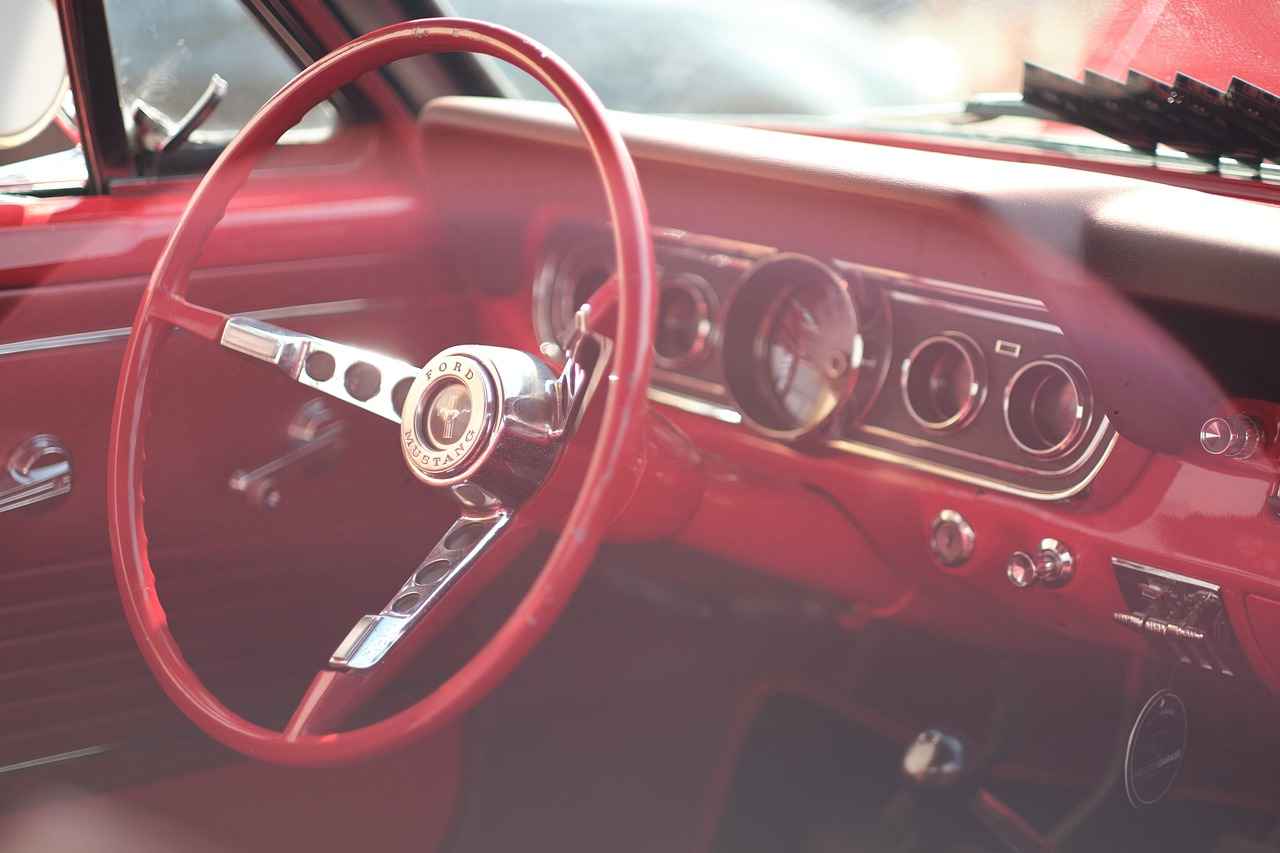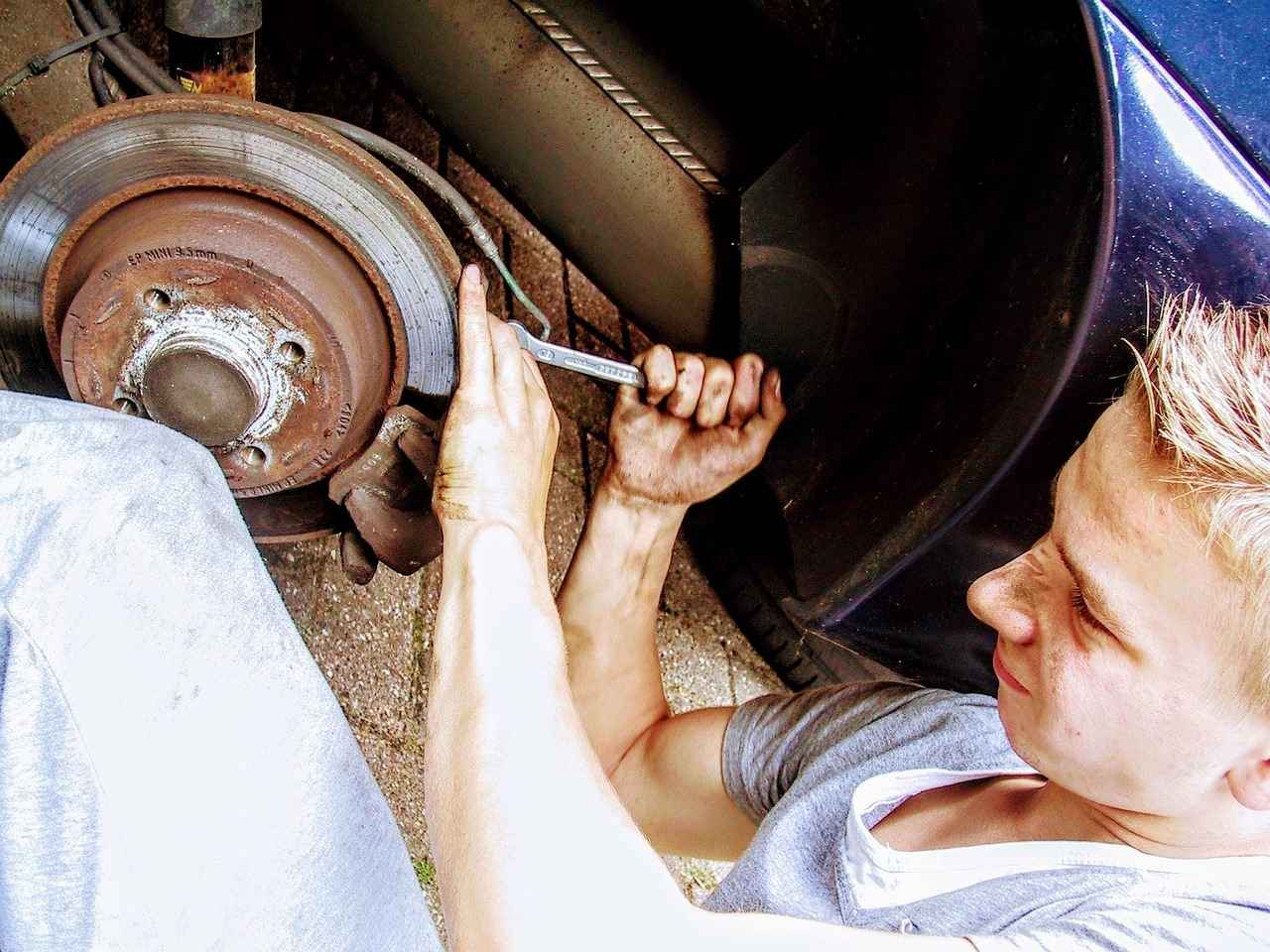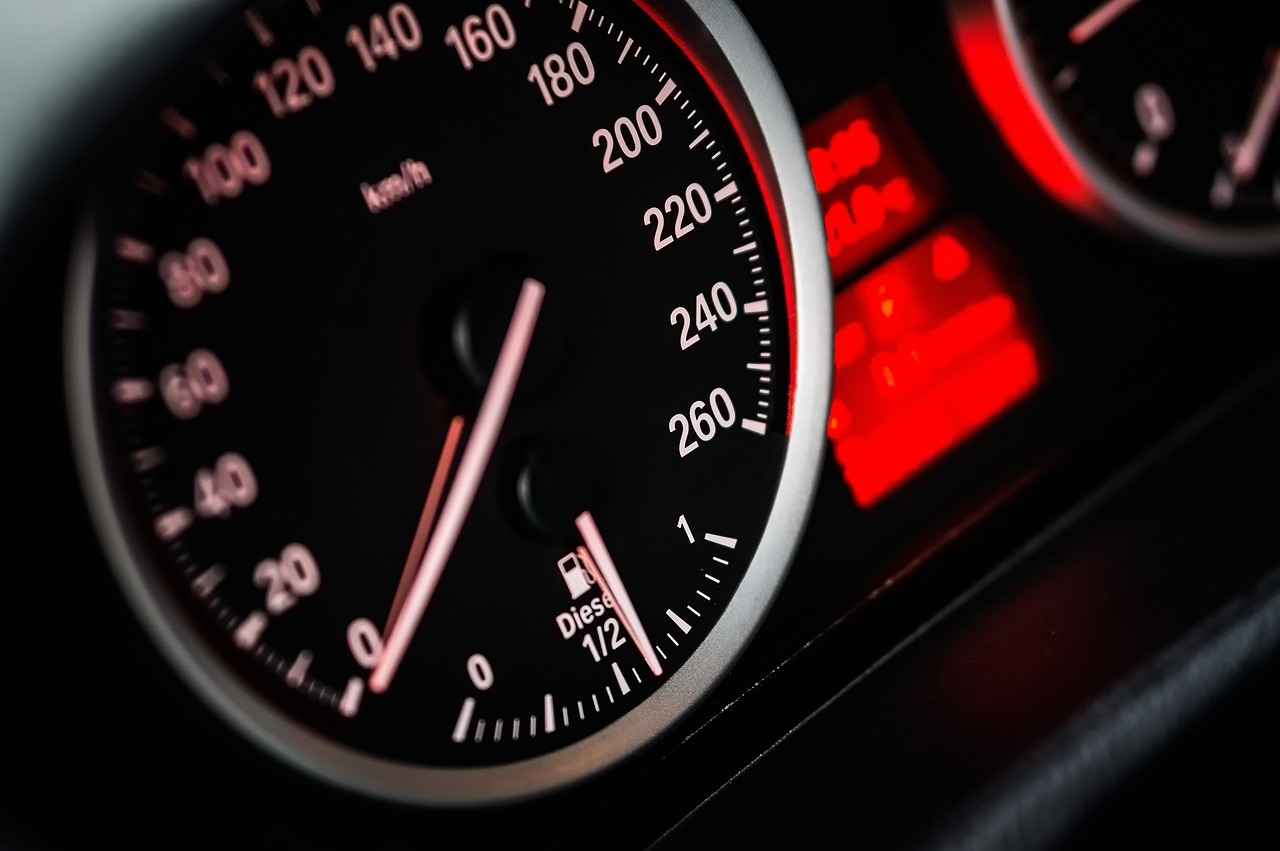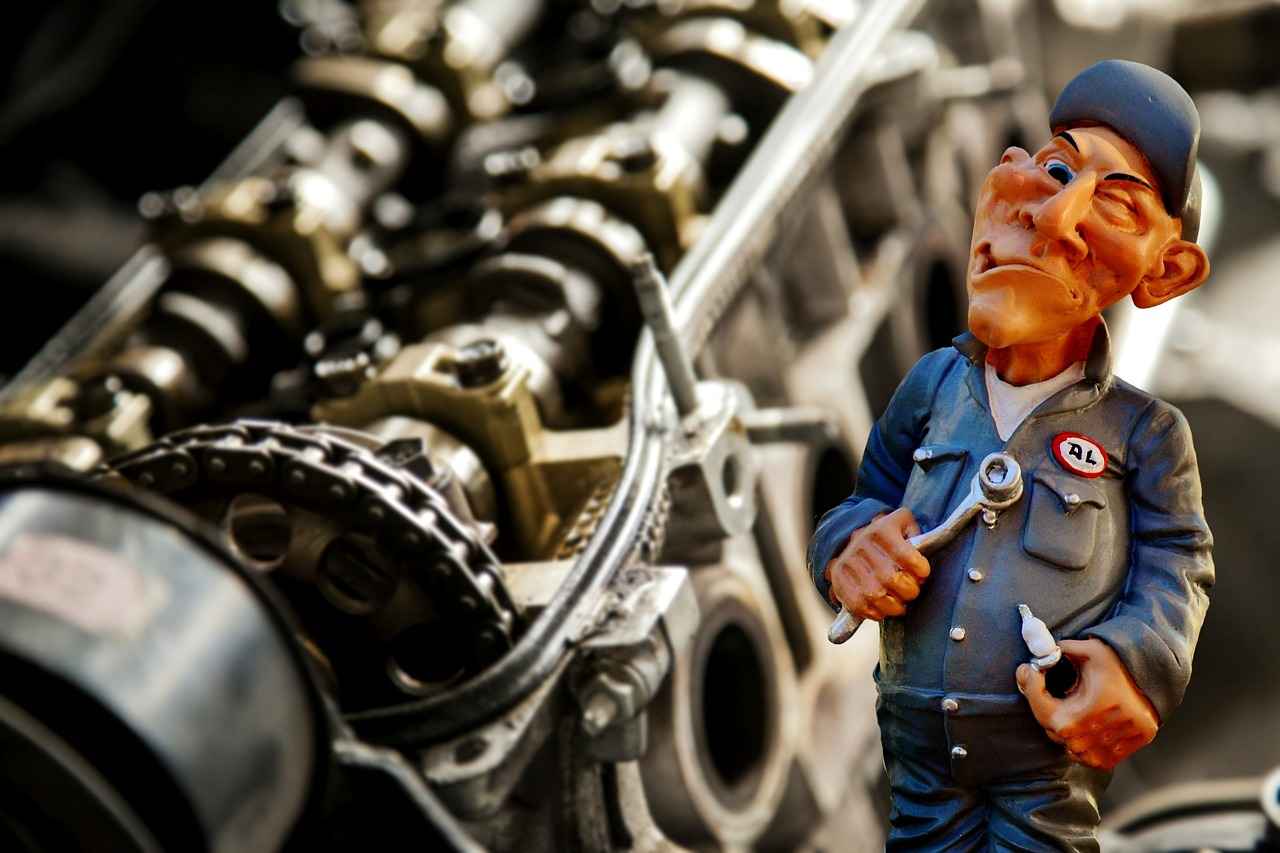This article explores how to find reliable foreign car repair specialists, ensuring quality service and maintenance for your vehicle. We will cover essential factors to consider in your search.
Understanding the Importance of Specialized Foreign Car Repair
When it comes to maintaining your foreign vehicle, specialized repair services are not just a luxury; they are a necessity. Foreign cars often come with unique engineering and technology that requires specific knowledge and tools. Mechanics trained in these nuances can ensure that your vehicle operates at its best.
Foreign car brands, such as BMW, Audi, and Mercedes-Benz, often employ advanced technology that is not common in domestic vehicles. These cars may require specialized diagnostic equipment and repair techniques. Without the right expertise, repairs can lead to further damage, increased costs, and safety hazards. Therefore, choosing a repair specialist with experience in your car’s make is crucial for longevity and performance.
Identifying Qualified Foreign Car Repair Specialists
Finding a qualified specialist for your foreign vehicle involves more than just a quick online search. It requires careful consideration of their certifications and experience. Start by looking for mechanics who have certifications from recognized organizations, such as the National Institute for Automotive Service Excellence (ASE). These certifications indicate that the mechanic has passed rigorous testing and possesses the necessary skills to perform high-quality repairs.
Moreover, consider mechanics who have received manufacturer-specific training. This training ensures that they are familiar with the latest technologies and repair methods for your specific vehicle brand. For instance, a mechanic trained by Audi will have insights into the latest Audi models that a general mechanic might not.
Researching Local Foreign Car Repair Shops
Conducting thorough research is essential in finding reputable foreign car repair shops. Start by looking for online reviews and ratings. Websites like Yelp and Google Reviews can provide valuable insights into a shop’s reputation. Pay attention to comments about customer service, repair quality, and pricing.
Additionally, seeking word-of-mouth recommendations can lead you to trustworthy mechanics. Ask friends, family, or colleagues if they have any recommendations for foreign car specialists. Online forums and social media groups dedicated to car enthusiasts can also be great resources for finding reliable repair shops.
Assessing the Services Offered by Foreign Car Repair Shops
Understanding the range of services provided by repair shops is vital. A qualified foreign car repair shop should offer a variety of services, including:
- Routine Maintenance Services: Regular oil changes, tire rotations, and brake inspections are essential for keeping your vehicle in top shape.
- Advanced Diagnostic Services: Access to modern diagnostic tools is crucial for identifying complex issues that may not be immediately apparent.
Make sure to inquire about the specific services offered by the shop and whether they have experience with your particular make and model.
Cost Considerations When Choosing a Foreign Car Repair Shop
Cost is a significant factor when selecting a repair shop. It’s essential to obtain estimates from multiple shops to understand the average repair costs for your vehicle. Pay attention to the details in the estimates, including labor rates and parts costs.
When comparing prices, remember that the cheapest option is not always the best. Look for a balance between cost and quality of service. A shop that offers a fair price but has excellent reviews may be worth the investment.
The Importance of Warranties and Guarantees on Repairs
Warranties and guarantees can provide peace of mind regarding repair quality. A reputable repair shop should offer warranties on both parts and labor. This assurance indicates that the shop stands behind its work and is willing to rectify any issues that may arise post-repair.
Different types of warranties may vary in coverage, so it’s essential to understand what is included. Be sure to ask about the terms of the warranty and what steps to take if you encounter problems after the repair.
Building a Long-Term Relationship with Your Foreign Car Repair Specialist
Establishing a lasting relationship with a repair specialist can enhance your vehicle’s maintenance experience. Regular communication and check-ins with your mechanic can lead to better service and trust. A good mechanic will not only keep your car in excellent condition but will also provide valuable advice on future maintenance.
Trust is a cornerstone of any service relationship. Take the time to evaluate the reliability and trustworthiness of your chosen repair specialist. A mechanic who takes the time to explain repairs and answer your questions is likely someone you can trust with your vehicle.

Understanding the Importance of Specialized Foreign Car Repair
When it comes to maintaining your vehicle, especially if it’s a foreign car, the significance of specialized foreign car repair cannot be overstated. Understanding the nuances of these vehicles, from their intricate engineering to their unique parts, is essential for ensuring optimal performance and longevity. This section will explore the reasons why expertise in foreign car repair is not just beneficial but crucial for vehicle owners.
Foreign cars often come with advanced technology and engineering that differ significantly from domestic models. Mechanics who specialize in foreign vehicles are trained to handle these complexities, ensuring that repairs and maintenance are performed accurately. Here are several reasons why specialized knowledge is vital:
- Complex Engineering: Foreign cars typically feature intricate systems that require a deep understanding of their design and function. Mechanics with specialized training can diagnose issues more effectively and provide appropriate solutions.
- Access to Specialized Tools: Many foreign cars require specific tools and equipment for repairs. Specialists often have access to these tools, which may not be available at general repair shops.
- Quality of Parts: Specialized mechanics usually have established relationships with suppliers of genuine parts. This ensures that your vehicle receives high-quality components that meet manufacturer standards.
Regular maintenance is essential for any vehicle, but it becomes even more critical for foreign cars due to their unique requirements. Specialized foreign car repair shops understand these needs and offer tailored services that help maintain your vehicle’s performance. Key aspects include:
- Routine Maintenance Services: These include oil changes, brake inspections, and tire rotations, all performed with the specific needs of your foreign car in mind.
- Advanced Diagnostic Services: Utilizing state-of-the-art diagnostic tools, specialized mechanics can identify and address potential issues before they escalate into costly repairs.
Each foreign car manufacturer has its own set of specifications and recommended maintenance schedules. A specialized mechanic is well-versed in these guidelines, ensuring that your vehicle receives the care it needs. This knowledge helps in:
- Adhering to Warranty Requirements: Many manufacturers require specific maintenance to keep warranties valid. Specialized repair shops are familiar with these requirements.
- Enhancing Resale Value: Regular maintenance by a qualified specialist can enhance your vehicle’s resale value by keeping it in optimal condition.
While specialized foreign car repairs may initially seem more expensive than general repairs, they can save you money in the long run. Here’s how:
- Avoiding Costly Mistakes: A specialist’s expertise reduces the likelihood of errors that can lead to expensive repairs down the line.
- Extended Vehicle Lifespan: Proper maintenance and repairs can significantly extend the life of your vehicle, providing better value over time.
In conclusion, investing in specialized foreign car repair is essential for maintaining the performance, longevity, and value of your vehicle. By choosing a qualified mechanic with expertise in your specific make, you ensure that your car receives the best possible care.

Identifying Qualified Foreign Car Repair Specialists
When it comes to maintaining the integrity and performance of your foreign vehicle, finding a qualified car repair specialist is essential. The unique engineering and technology of foreign cars often require specialized knowledge and skills that general mechanics may lack. Therefore, it is crucial to identify the right professionals who can offer expert care for your vehicle. Below are key qualifications and considerations to help you make an informed decision.
- Certifications and Training: Look for mechanics who hold relevant certifications from recognized institutions. Certifications such as ASE (National Institute for Automotive Service Excellence) indicate a mechanic’s proficiency in automotive repair and maintenance. Additionally, manufacturer-specific training ensures that the mechanic is well-versed in the particularities of your car’s make and model.
- Experience with Specific Brands: It is beneficial to choose a mechanic who has extensive experience with your specific foreign car brand. Each manufacturer has unique systems and technologies; a mechanic who specializes in your brand will likely have a deeper understanding of its intricacies.
- Reputation and Reviews: Research the reputation of the repair shop. Online reviews and testimonials can provide valuable insights into the quality of service offered. Look for shops with a solid track record of satisfied customers.
Certifications and Training for Mechanics
Certifications are a critical factor in determining a mechanic’s capability. Mechanics should possess relevant certifications from recognized organizations. The ASE certification is one of the most respected credentials in the automotive industry. It requires passing rigorous tests that cover various aspects of vehicle repair and maintenance. Mechanics with ASE certification demonstrate a commitment to their profession and a high level of expertise.
Moreover, manufacturer-specific training is invaluable. Many foreign car manufacturers offer training programs that provide mechanics with the latest repair techniques and technology updates. This training equips them to handle the latest models and complex systems unique to specific brands.
Experience with Specific Brands
Experience plays a significant role in the quality of repairs. A mechanic who has worked extensively with your particular foreign car brand is more likely to understand its unique challenges and quirks. For example, a mechanic specializing in European brands like BMW or Audi will have insights into the specific parts and systems that often require attention. This specialization can lead to more accurate diagnostics and repairs, ultimately saving you time and money.
Researching Local Foreign Car Repair Shops
Conducting thorough research is essential for finding reputable foreign car repair shops. Start by asking for recommendations from friends, family, or online communities. Personal referrals can often lead you to trustworthy mechanics who have proven their skills.
Additionally, utilize online platforms to read reviews and ratings of local repair shops. Websites like Yelp or Google Reviews can provide insights into customer experiences, helping you gauge the reliability and quality of service.
Assessing the Services Offered
Understanding the range of services provided by repair shops is vital. A qualified foreign car repair specialist should offer a comprehensive array of services, including routine maintenance, diagnostics, and specialized repairs. Regular maintenance, such as oil changes and brake inspections, is crucial for the longevity of your vehicle. Advanced diagnostic services using modern tools can identify complex issues that may not be apparent during a standard inspection.
In summary, identifying qualified foreign car repair specialists involves careful consideration of certifications, experience, reputation, and the range of services offered. By following these guidelines, you can ensure that your vehicle receives the expert care it deserves, ultimately enhancing its performance and longevity.
Certifications and Training for Mechanics
When it comes to ensuring that your foreign vehicle receives the best care possible, the qualifications of the mechanic are paramount. One of the most critical aspects of a mechanic’s qualifications is their certifications and training. This section will delve into why these credentials are essential for achieving high-quality repairs and maintaining the longevity of your vehicle.
In the automotive repair industry, certifications serve as a benchmark for a mechanic’s skills and knowledge. Mechanics should possess relevant certifications from recognized organizations to ensure they are equipped to handle the complexities of modern vehicles. Among the most respected certifications are those offered by the National Institute for Automotive Service Excellence (ASE) and various manufacturer-specific training programs.
ASE Certification is a well-regarded credential that demonstrates a mechanic’s proficiency in various automotive repair areas. To achieve ASE certification, mechanics must pass rigorous exams that cover a wide range of topics, from engine repair to electrical systems. This certification not only indicates a mechanic’s technical skills but also their commitment to ongoing education and staying updated with industry standards.
In addition to general certifications, manufacturer-specific training is crucial for mechanics who specialize in foreign vehicles. Many car manufacturers offer training programs that teach mechanics about the unique systems and technologies in their vehicles. This training ensures that mechanics are familiar with the latest repair techniques and diagnostic tools specific to each manufacturer, which can significantly enhance the quality of repairs.
For example, a mechanic trained by BMW or Audi will have insights into the specific challenges and common issues associated with those brands. This specialized knowledge can lead to quicker diagnostics and more effective solutions, ultimately saving vehicle owners time and money.
| Certification Type | Description | Benefits |
|---|---|---|
| ASE Certification | General certification that covers various automotive repair areas. | Indicates proficiency and commitment to ongoing education. |
| Manufacturer-Specific Training | Training provided by car manufacturers on their specific vehicles. | Familiarity with unique systems and technologies, leading to better repair quality. |
Furthermore, the importance of certifications extends beyond just technical skills. Mechanics with recognized credentials often have access to exclusive resources, tools, and support from manufacturers. This access can be invaluable when diagnosing and repairing complex issues that may not be covered in general training programs.
When searching for a mechanic, it’s advisable to inquire about their certifications and training. Ask questions such as:
- What certifications do you hold?
- Have you completed any manufacturer-specific training?
- How do you stay updated with the latest automotive technologies?
By ensuring that your mechanic possesses the necessary certifications and training, you can have greater confidence in their ability to provide quality repairs. This not only enhances the performance of your vehicle but also contributes to its longevity, ultimately saving you money in the long run.
Manufacturer-Specific Training
In the rapidly evolving automotive industry, is essential for mechanics to stay updated with the latest technologies and repair methodologies. This specialized training is provided directly by car manufacturers, ensuring that technicians are well-versed in the unique systems and components of various vehicle brands. Understanding how this training benefits vehicle owners is crucial in making informed decisions about car maintenance and repairs.
One of the primary advantages of manufacturer-specific training is that it equips mechanics with in-depth knowledge about the vehicle’s engineering and design. Each car brand has its own specifications, technologies, and repair techniques. For instance, a mechanic trained by a manufacturer like BMW will understand the intricacies of their engine management systems, electrical components, and advanced safety features. This expertise leads to more accurate diagnoses and efficient repairs, ultimately extending the vehicle’s lifespan.
Moreover, mechanics who undergo manufacturer-specific training are often familiar with the latest tools and diagnostic equipment used in the industry. These tools are often proprietary and tailored to specific brands. For example, a technician trained by Mercedes-Benz will have access to specialized software and diagnostic machines that allow them to identify issues that generic tools might miss. This access not only improves the quality of repairs but also enhances the overall customer experience by reducing the time a vehicle spends in the shop.
Additionally, manufacturer-specific training often includes updates on new models and technologies. As car manufacturers introduce innovative features such as hybrid systems, advanced driver-assistance systems (ADAS), and electric drivetrains, mechanics trained by these manufacturers are more likely to be familiar with the latest advancements. This knowledge is invaluable for vehicle owners who want to ensure their cars are maintained according to the latest standards and practices.
Another significant benefit is the potential for warranty compliance. Many vehicle warranties require that repairs be performed by certified technicians who have received manufacturer training. By choosing a mechanic with this specialized training, vehicle owners can rest assured that their warranty remains intact, protecting them from unexpected repair costs down the road. This compliance is particularly important for high-value vehicles, where the cost of repairs can be substantial.
In addition to these practical benefits, manufacturer-specific training also contributes to a higher level of trust between vehicle owners and their mechanics. When a mechanic can demonstrate their qualifications and knowledge about a specific brand, it instills confidence in the owner that their vehicle is in capable hands. This trust is essential for establishing long-term relationships between car owners and their repair specialists.
In summary, is a critical component of quality vehicle maintenance and repair. It ensures that mechanics are equipped with the latest knowledge, tools, and techniques necessary to address the unique needs of different car brands. For vehicle owners, this translates to better service, enhanced vehicle performance, and peace of mind regarding warranty compliance. When choosing a repair shop, prioritizing mechanics with manufacturer-specific training can lead to a more satisfying ownership experience and a well-maintained vehicle.
General Mechanic Certifications
When it comes to ensuring that your foreign car receives the best possible care, understanding the significance of general mechanic certifications is crucial. These credentials not only reflect a mechanic’s knowledge and skills but also serve as a testament to their commitment to maintaining high standards in automotive service. Among the most recognized certifications is the one offered by the National Institute for Automotive Service Excellence (ASE). This certification indicates that the mechanic has passed rigorous testing and possesses a comprehensive understanding of vehicle systems and repair techniques.
- ASE Certification: This certification is widely respected in the automotive industry. Mechanics who hold ASE certifications have demonstrated their expertise in various areas, including engine repair, brakes, electrical systems, and more. The ASE certification process requires mechanics to pass multiple exams, ensuring they are well-versed in the latest automotive technologies and practices.
- Manufacturer-Specific Certifications: In addition to ASE certifications, many mechanics pursue manufacturer-specific training. This training is provided by car manufacturers and focuses on the unique systems and technologies used in their vehicles. For example, a mechanic certified by a specific brand, such as BMW or Audi, will have in-depth knowledge of that brand’s engineering and repair requirements.
- Continuous Education: The automotive industry is constantly evolving, with new technologies and repair techniques emerging regularly. Certified mechanics often participate in ongoing education to stay updated on the latest advancements. This commitment to learning ensures that they can provide the most effective and efficient service to their customers.
The importance of these certifications cannot be overstated. They provide vehicle owners with peace of mind, knowing that their car is in the hands of a qualified professional. Mechanics with ASE and manufacturer-specific certifications are more likely to diagnose issues accurately and perform repairs correctly the first time, reducing the likelihood of recurring problems.
Furthermore, choosing a mechanic with recognized certifications can potentially save you money in the long run. While it may be tempting to opt for a less expensive service, the expertise that comes with certification can lead to fewer repairs and better vehicle performance. In contrast, unqualified mechanics may overlook critical issues, resulting in more extensive damage and higher repair costs down the line.
To assess a mechanic’s qualifications, consider asking the following questions:
- What certifications do you hold?
- How often do you participate in continuing education or training?
- Do you have experience with my specific vehicle make and model?
By prioritizing mechanics with reputable certifications, you can ensure that your foreign car receives the specialized care it deserves. Remember, investing in a qualified mechanic is an investment in the longevity and performance of your vehicle.
In summary, general mechanic certifications, particularly those from ASE and specific manufacturers, are vital indicators of a mechanic’s proficiency. These credentials not only reflect a commitment to excellence but also provide vehicle owners with confidence in the quality of service they can expect.
Experience with Specific Brands
When it comes to maintaining and repairing foreign cars, the **experience** of your mechanic with your specific vehicle brand can significantly impact the quality of service you receive. Choosing a mechanic who specializes in your make not only ensures better repair outcomes but also enhances the overall longevity of your vehicle. Below, we explore the numerous advantages of selecting a mechanic with expertise in your particular foreign car brand.- In-Depth Knowledge of Brand-Specific Issues: Each foreign car brand comes with its unique set of engineering designs and common issues. A mechanic who specializes in your brand is likely to be familiar with these nuances. For example, certain European cars might have recurring electrical problems that a general mechanic may overlook.
- Access to Specialized Tools and Equipment: Many foreign cars require specific tools for repairs and maintenance. A specialized mechanic will have access to the necessary equipment designed for your vehicle model, ensuring that repairs are performed correctly and efficiently.
- Manufacturer-Specific Training: Mechanics who specialize in particular brands often undergo manufacturer-specific training. This training provides them with the latest techniques and updates on any changes in repair protocols, ensuring that your vehicle receives the most current care.
- Better Diagnostic Skills: An experienced mechanic will have honed their diagnostic skills on your specific brand, allowing them to quickly identify issues that may not be apparent to someone less familiar with the make.
- Quality of Replacement Parts: Specialized mechanics often have established relationships with suppliers, which can lead to better quality parts for your vehicle. They are more likely to source original equipment manufacturer (OEM) parts, ensuring that your car is repaired with components that meet the manufacturer’s specifications.
For example, if you own a Volkswagen, a mechanic who specializes in this brand will be well-versed in the common problems associated with it, such as issues with the turbocharger or electrical system. They will also be aware of any recalls or service bulletins issued by Volkswagen, ensuring that your car is not only repaired but also up to date with any necessary modifications.
Furthermore, a mechanic’s familiarity with specific brands can lead to more accurate estimates of repair costs. They can provide insights into which repairs are necessary and which can be deferred, helping you make informed decisions about your vehicle’s maintenance. This level of transparency can build a strong relationship between you and your mechanic, fostering trust and reliability.
| Brand | Common Issues | Specialized Mechanic Benefits |
|---|---|---|
| BMW | Electrical failures, oil leaks | Expertise in specific electrical systems, access to specialized diagnostic tools |
| Audi | Turbocharger problems, brake issues | Familiarity with brand-specific repairs, OEM parts availability |
| Mercedes-Benz | Transmission issues, suspension problems | Knowledge of complex systems, manufacturer training |
In summary, the **experience** of your mechanic with your specific foreign car brand plays a crucial role in the quality of repairs and maintenance your vehicle receives. By choosing a specialist, you not only gain access to expert knowledge and resources but also ensure that your vehicle remains in optimal condition for years to come. Investing in a mechanic who understands the intricacies of your car brand will ultimately lead to a more reliable and enjoyable driving experience.

Researching Local Foreign Car Repair Shops
Finding a trustworthy foreign car repair shop can be a daunting task, especially with the plethora of options available. Conducting thorough research is essential for ensuring you choose a reputable establishment that meets your needs. Here are some practical steps to guide you in your search for local foreign car repair shops.
- Start with Online Research: Begin by utilizing search engines to find foreign car repair shops in your area. Use specific keywords related to your car’s make and model to narrow down the results. For example, searching for “BMW repair near me” or “Audi service in [your location]” can yield more relevant results.
- Check Online Reviews and Ratings: Once you have a list of potential shops, delve into online reviews. Websites like Google Reviews, Yelp, and specialized automotive forums can provide insights into the experiences of other customers. Pay attention to both positive and negative feedback, as this can give you a balanced view of the shop’s reputation. Look for patterns in the reviews—consistent complaints about customer service or pricing can be red flags.
- Explore Social Media: Social media platforms can also be a valuable resource. Many repair shops maintain a presence on platforms like Facebook and Instagram, where they share customer testimonials and showcase their work. Engaging with these posts or reaching out directly can help you gauge their customer service and expertise.
- Ask for Recommendations: Word of mouth remains one of the most reliable forms of information. Ask friends, family, or colleagues if they have any recommendations for reputable foreign car repair specialists. Additionally, consider reaching out to local car clubs or online communities dedicated to your car brand; members often have firsthand experience with local mechanics.
- Verify Certifications and Experience: Once you’ve narrowed down your options, check the qualifications of the mechanics at each shop. Look for certifications from recognized organizations, such as the National Institute for Automotive Service Excellence (ASE). Shops that employ mechanics with manufacturer-specific training are often better equipped to handle the unique needs of foreign vehicles.
- Visit the Shop: If possible, visit the repair shops you’re considering. A personal visit allows you to assess the cleanliness and organization of the facility, as well as the professionalism of the staff. Don’t hesitate to ask questions about their experience with your specific make and model, as well as the services they offer.
- Request Estimates: Before making a final decision, request estimates from multiple shops. This not only helps you compare pricing but also gives you insight into their transparency and willingness to communicate. Be cautious of estimates that seem significantly lower than others, as they may indicate a compromise in quality.
By following these steps, you can conduct effective research and find a reliable foreign car repair shop that meets your specific needs. Remember, investing time in research is crucial to ensuring your vehicle receives the best possible care from qualified professionals.
Online Reviews and Ratings
In today’s digital age, online reviews have become an essential tool for consumers seeking to evaluate the reputation of foreign car repair shops. These reviews can offer a wealth of information about the quality of service, customer experiences, and overall satisfaction. This section will explore how to effectively interpret these reviews and ratings to make informed decisions about where to take your vehicle for repairs.
Understanding the Significance of Online Reviews
Online reviews serve as a modern form of word-of-mouth recommendations. According to a recent study, nearly 84% of consumers trust online reviews as much as personal recommendations. This statistic underscores the importance of considering customer feedback when selecting a repair shop. Reviews can highlight both the strengths and weaknesses of a shop, providing insights that may not be evident from a shop’s marketing materials or website.
Key Elements to Look for in Reviews
- Overall Rating: Most review platforms provide an overall star rating, typically ranging from 1 to 5 stars. A higher rating generally indicates better service quality.
- Number of Reviews: A shop with a high number of reviews may offer more reliable insights than one with only a few reviews. Look for consistency in feedback.
- Specific Feedback: Pay attention to detailed comments regarding specific services, customer service experiences, and the shop’s communication practices.
- Response from Management: A shop that actively responds to reviews, both positive and negative, demonstrates a commitment to customer satisfaction and accountability.
Interpreting Ratings and Comments
While a high star rating is a positive indicator, it is crucial to delve deeper into the comments. For instance, a shop may have a 4.5-star rating but could have several reviews highlighting issues with communication or delays in service. Conversely, a shop with a 3-star rating might have a few negative reviews overshadowing numerous positive experiences. Therefore, it is essential to look for patterns in the feedback rather than relying solely on the numerical rating.
Identifying Red Flags in Reviews
Not all reviews are created equal, and some may raise red flags that warrant caution. Look out for:
- Repeated Complaints: If multiple reviews mention the same issue, such as poor workmanship or unprofessional behavior, consider this a significant warning sign.
- Unverified Reviews: Be wary of overly positive reviews that lack detail or seem generic. These could be fabricated or incentivized.
- Failure to Address Complaints: If a shop consistently receives negative feedback and does not respond or rectify the situation, it may indicate a lack of accountability.
Utilizing Multiple Platforms for a Comprehensive View
Relying on a single review platform can provide a skewed perspective. To gain a well-rounded understanding of a repair shop’s reputation, explore multiple review sites such as Google Reviews, Yelp, and specialized automotive forums. Each platform may attract different demographics, leading to varied feedback. By cross-referencing reviews, you can develop a more accurate picture of the shop’s performance.
Conclusion: Making Informed Decisions
In conclusion, online reviews and ratings are invaluable resources for assessing foreign car repair shops. By understanding the significance of these reviews, looking for specific elements, and identifying potential red flags, you can make informed decisions that will lead to a positive repair experience. Remember to utilize multiple platforms to ensure a comprehensive view, allowing you to choose a repair shop that aligns with your expectations for quality and service.
Word of Mouth Recommendations
When it comes to finding a reliable foreign car repair shop, can be one of the most effective methods. Personal referrals from friends, family, or trusted online communities can provide insights that online reviews alone may not capture. In this section, we will explore how to effectively seek out these recommendations and why they are invaluable in your search for a trustworthy mechanic.
First and foremost, ask your inner circle. Start by reaching out to friends, family, and coworkers who own foreign cars. They may have firsthand experience with local mechanics and can share their honest opinions. Consider asking specific questions such as:
- What services did you have done?
- How was your overall experience?
- Did you feel the pricing was fair?
- Would you return to this shop for future repairs?
These targeted questions can help you gauge not only the quality of service but also the reliability of the mechanic. Additionally, it’s beneficial to inquire about any negative experiences, as these can be just as telling as positive ones.
Another effective way to gather recommendations is through online communities. Platforms like social media groups, forums, and specialized automotive websites can be excellent resources for finding reputable repair shops. Here’s how to navigate these platforms:
- Join relevant groups: Look for local automotive groups or forums that focus on foreign cars. Engage actively by asking for recommendations.
- Utilize hashtags: Use hashtags related to your vehicle make and model along with terms like “mechanic” or “repair shop” on social media platforms to find discussions around local services.
- Read through threads: Often, users will share their experiences and recommendations in threads. Take note of any shops that are frequently mentioned.
Furthermore, consider the credibility of the source. Recommendations from friends and family are generally more trustworthy than anonymous online reviews. However, it’s important to remember that personal experiences can vary. A shop that worked well for one person may not necessarily meet your expectations. Therefore, use these recommendations as a starting point rather than the sole basis for your decision.
Once you have a list of potential repair shops based on recommendations, it’s prudent to conduct further research. Look for online reviews on platforms like Google, Yelp, or the Better Business Bureau. Compare the feedback you received from personal recommendations with what you find online. This dual approach can help you build a more comprehensive picture of each shop’s reputation.
Lastly, don’t hesitate to visit the shops you are considering. A personal visit can provide valuable insights into the shop’s professionalism and customer service. Observe the cleanliness of the shop, the demeanor of the staff, and how they interact with customers. Trust your instincts—if something feels off, it may be worth looking elsewhere.
In summary, seeking word-of-mouth recommendations is a powerful tool in finding a trustworthy foreign car repair shop. By leveraging your personal network and online communities, you can gather valuable insights that lead you to a reliable mechanic who meets your needs.

Assessing the Services Offered by Foreign Car Repair Shops
When it comes to maintaining the performance and safety of your foreign vehicle, understanding the range of services provided by repair shops is vital. Specialized foreign car mechanics offer a variety of services tailored to meet the unique needs of different makes and models. This section details common services that specialized foreign car mechanics should offer, ensuring that vehicle owners can make informed decisions about their car maintenance and repairs.
Routine maintenance is essential for the longevity of your vehicle. A well-maintained car not only performs better but also retains its value over time. Specialized foreign car repair shops typically offer a range of routine maintenance services, including:
- Oil Changes: Regular oil changes are crucial for keeping your engine running smoothly. Mechanics will use the appropriate oil type specified by the manufacturer.
- Fluid Checks and Changes: This includes checking and replacing fluids such as coolant, brake fluid, transmission fluid, and power steering fluid.
- Brake Inspections: Regular brake inspections ensure safety and performance. Mechanics will check brake pads, rotors, and fluid levels.
- Tire Rotation and Alignment: Proper tire maintenance helps in extending tire life and improving fuel efficiency.
- Battery Checks: Battery health checks and replacements are essential, especially for vehicles with advanced electrical systems.
Advanced diagnostic services are crucial for identifying complex issues that may not be immediately apparent. Specialized foreign car repair shops utilize modern diagnostic tools and techniques to accurately assess vehicle problems. Some key aspects include:
- Computer Diagnostics: Many foreign cars are equipped with sophisticated computer systems. Mechanics use diagnostic scanners to read error codes and pinpoint issues.
- Electrical System Diagnostics: Electrical problems can be challenging to diagnose. Specialized shops have the expertise to troubleshoot and repair electrical system issues.
- Engine Performance Testing: Mechanics conduct tests to evaluate engine performance, including emissions testing and fuel efficiency assessments.
- Suspension and Steering Diagnostics: Proper handling and ride quality are essential. Mechanics check for issues in the suspension and steering systems.
In addition to mechanical repairs, many specialized foreign car repair shops offer body and paint services. This can include:
- Collision Repair: If your vehicle has been in an accident, specialized shops can restore it to its original condition.
- Paint Matching and Touch-Ups: Using advanced technology, mechanics can match paint colors precisely for repairs.
- Rust Repair: Addressing rust issues early can prevent more extensive damage down the line.
For car enthusiasts, performance upgrades and customization are often sought after. Specialized foreign car repair shops may offer:
- Engine Modifications: Upgrading components for enhanced performance, such as turbochargers or exhaust systems.
- Suspension Upgrades: Enhancing handling and ride comfort through upgraded suspension components.
- Custom Exhaust Systems: Tailoring exhaust systems for improved sound and performance.
In conclusion, assessing the services offered by foreign car repair shops is crucial for maintaining your vehicle’s performance and safety. By understanding the range of services available, you can make informed decisions about where to take your car for repairs and maintenance. Whether you need routine maintenance, advanced diagnostics, bodywork, or performance upgrades, specialized foreign car mechanics are equipped to handle your vehicle’s unique needs.
Routine Maintenance Services
Routine maintenance is a vital aspect of vehicle ownership, particularly for foreign cars, which often require specialized care to function optimally. Regular maintenance not only enhances the performance of your vehicle but also significantly extends its lifespan. This section will delve into the typical maintenance services offered by foreign car repair specialists, ensuring that your vehicle remains in peak condition.
Foreign car repair specialists typically provide a range of routine maintenance services, which can be categorized as follows:
| Service | Description | Frequency |
|---|---|---|
| Oil Change | Replacing old oil with fresh motor oil to ensure smooth engine operation. | Every 5,000 to 7,500 miles |
| Tire Rotation | Switching the position of tires to promote even wear and extend tire life. | Every 6,000 to 8,000 miles |
| Brake Inspection | Assessing brake pads, rotors, and fluid to ensure braking efficiency and safety. | Every 10,000 miles or annually |
| Fluid Checks | Inspecting and replenishing essential fluids, including coolant, brake fluid, and transmission fluid. | Every 6 months |
| Battery Check | Testing battery health and connections to prevent starting issues. | Every 6 months |
| Filter Replacements | Changing air and cabin filters to maintain air quality and engine performance. | Every 12,000 to 15,000 miles |
Among these services, the oil change stands out as one of the most critical. Fresh oil lubricates engine components, reduces friction, and helps to prevent overheating. Neglecting this service can lead to severe engine damage, especially in foreign vehicles that often have tighter tolerances and higher performance requirements.
Tire rotation is another essential service, particularly for foreign cars that may have unique tire wear patterns. Regular rotation helps to maximize tire life and improve handling, which is crucial for maintaining the driving experience that foreign car enthusiasts cherish.
In addition to these services, brake inspections are vital for safety. Foreign cars often come equipped with advanced braking systems that require specialized knowledge to service correctly. Regular inspections help to identify wear and tear before they become safety hazards.
Moreover, routine checks of essential fluids are necessary to ensure that all vehicle systems operate smoothly. This includes not only engine oil but also coolant, transmission fluid, and brake fluid, all of which play critical roles in vehicle performance and safety.
Finally, battery checks and filter replacements are often overlooked but are equally important. A healthy battery ensures reliable starting, while clean filters contribute to engine efficiency and cabin air quality.
In conclusion, engaging with a foreign car repair specialist for routine maintenance services is not just a recommendation; it is a necessity for any owner looking to keep their vehicle in top condition. By adhering to a regular maintenance schedule and utilizing the expertise of specialized mechanics, you can ensure that your foreign car continues to perform at its best for years to come.
Advanced Diagnostic Services
In today’s automotive landscape, have become a cornerstone for effective vehicle maintenance and repair. These services are essential for identifying complex issues that may not be apparent through traditional inspection methods. With the rapid evolution of automotive technology, the importance of having access to modern diagnostic tools and techniques cannot be overstated.
Modern vehicles are equipped with sophisticated electronic systems that control everything from engine performance to safety features. As a result, mechanics must leverage advanced diagnostic tools to accurately pinpoint problems. These tools often include computerized diagnostic equipment, which interfaces with a vehicle’s onboard systems, allowing technicians to read error codes and assess the performance of various components.
One of the primary benefits of advanced diagnostic services is the ability to detect issues early. Many vehicle problems, if left untreated, can escalate into more severe and costly repairs. For instance, an engine light may indicate a minor issue such as a faulty sensor. However, without advanced diagnostics, the underlying problem could lead to engine failure, resulting in extensive repair costs. Therefore, timely diagnostics can save vehicle owners both time and money in the long run.
Moreover, advanced diagnostic services enhance the accuracy of repairs. Traditional methods often rely on a mechanic’s experience and intuition, which can sometimes lead to misdiagnosis. In contrast, modern diagnostic tools provide precise data that can guide technicians toward the correct solution. This data-driven approach not only improves the quality of repairs but also increases customer satisfaction, as vehicles are more likely to be restored to optimal performance.
In addition to error code reading, advanced diagnostics can also include comprehensive system checks. This means that technicians can evaluate multiple systems simultaneously, such as the engine, transmission, and braking systems. By doing so, they can identify potential issues that may not trigger warning lights but could affect vehicle performance. This holistic approach ensures that all aspects of the vehicle are functioning correctly, thereby enhancing overall safety and reliability.
Another significant advantage of advanced diagnostic services is the ability to perform software updates. Many modern vehicles rely on software to control various functions, and manufacturers frequently release updates to improve performance or fix known issues. Technicians equipped with the right diagnostic tools can easily update a vehicle’s software, ensuring that it operates with the latest enhancements and fixes.
Furthermore, advanced diagnostics play a crucial role in maintaining compliance with emissions standards. As regulations become increasingly stringent, vehicle owners must ensure that their cars meet these requirements. Advanced diagnostic tools can help identify issues related to emissions control systems, allowing mechanics to address them proactively and avoid potential fines or penalties.
In conclusion, the importance of advanced diagnostic services in the automotive repair industry cannot be overlooked. By providing accurate, timely, and comprehensive assessments of vehicle health, these services not only enhance repair quality but also contribute to long-term vehicle performance and reliability. As technology continues to advance, the role of diagnostics will only become more critical, making it imperative for vehicle owners to seek out specialists who are well-versed in these modern techniques.

Cost Considerations When Choosing a Foreign Car Repair Shop
When it comes to maintaining your foreign vehicle, cost is a crucial factor that can significantly influence your decision when selecting a repair shop. Understanding how to evaluate repair costs is essential to ensure you receive fair pricing without compromising on the quality of service. This section will guide you through the various aspects of assessing repair costs, helping you make informed decisions.
Understanding Estimates and Quotes
Obtaining accurate estimates is the first step in managing repair costs effectively. Here are some key points to consider when requesting estimates:
- Request Multiple Quotes: Don’t settle for the first quote you receive. Contact several repair shops to gather a range of estimates. This will give you a better idea of the average cost for the repairs needed.
- Be Specific: When requesting a quote, be as detailed as possible about the issues your vehicle is experiencing. This will help mechanics provide a more accurate estimate.
- Inquire About Additional Fees: Ask if there are any hidden fees that could be added to the final bill, such as diagnostic fees or shop supplies charges.
Once you have gathered estimates, it’s important to understand what they entail. Look for a breakdown of costs, including parts, labor, and any additional services. This transparency will help you compare quotes effectively.
Comparing Prices for Transparency
Price comparison is a valuable tool in ensuring you are getting a fair deal. However, it’s important to remember that the cheapest option is not always the best. Here are some tips for comparing prices while maintaining quality:
| Criteria | Shop A | Shop B | Shop C |
|---|---|---|---|
| Hourly Labor Rate | $100 | $90 | $110 |
| Parts Markup | 20% | 15% | 25% |
| Warranty Offered | 1 Year | 6 Months | 2 Years |
When comparing prices, consider the following factors:
- Labor Rates: Different shops may charge varying labor rates. Evaluate how much time they estimate for the job and whether it aligns with their hourly rate.
- Parts Quality: Inquire about the quality of parts being used. Sometimes, a higher initial cost can lead to better long-term savings if higher quality parts are installed.
- Warranty and Guarantees: A shop that offers a solid warranty on their work may be worth a slightly higher price. This shows confidence in their service and provides peace of mind.
Negotiating for Better Pricing
Once you have your estimates and comparisons, don’t hesitate to negotiate. Here are some strategies you can employ:
- Leverage Your Research: Use the quotes you’ve gathered to discuss pricing with your preferred shop. If they are higher than others, ask if they can match or beat the competition.
- Ask About Discounts: Many repair shops offer discounts for first-time customers, referrals, or bundled services. Inquire about any available promotions.
- Build a Relationship: Establishing a rapport with your mechanic can sometimes lead to better pricing and service in the long run. Mechanics are more likely to offer discounts to customers they trust.
In summary, understanding and evaluating repair costs is essential when choosing a foreign car repair shop. By obtaining multiple estimates, comparing prices transparently, and negotiating effectively, you can ensure that you receive fair pricing without sacrificing quality. Always remember that investing in quality repairs now can lead to significant savings and peace of mind in the future.
Understanding Estimates and Quotes
When it comes to maintaining your foreign vehicle, obtaining accurate estimates for repairs is essential for effective budgeting. This process not only helps you understand the potential costs involved but also allows you to make informed decisions about where to take your car for repairs. In this section, we will explore how to request and interpret quotes from various repair shops effectively.
Requesting Quotes: The First Step
The first step in obtaining estimates is to reach out to multiple repair shops. Here are some tips on how to do this:
- Be Specific: When requesting a quote, provide as much detail as possible about your vehicle and the issues it is experiencing. This includes the make, model, year, and any specific symptoms or problems you have noticed.
- Ask for a Breakdown: Request a detailed breakdown of the costs associated with the repair. This should include parts, labor, and any additional fees. A transparent quote will help you understand what you are paying for.
- Inquire About Warranty: Ask if the estimates include any warranty on parts and labor. A shop that stands behind its work will often provide warranties, which can save you money in the long run.
Interpreting Quotes: What to Look For
- Comparative Pricing: Compare the quotes side by side. If one quote is significantly lower than the others, it may indicate a lack of quality or hidden costs. Be cautious and ask for clarification on any major discrepancies.
- Quality of Parts: Ensure that the quotes specify the type of parts being used. Original Equipment Manufacturer (OEM) parts are generally more reliable than aftermarket parts, which can vary in quality.
- Labor Rates: Different shops may charge different labor rates. Understand what these rates cover and how they compare to industry standards.
Negotiating Quotes: Finding the Best Value
Once you have gathered and interpreted the estimates, you may find it beneficial to negotiate. Here are some strategies:
- Leverage Competing Quotes: If you find a lower quote from another shop, use it as a bargaining tool. Many shops are willing to match or beat competitors’ prices to earn your business.
- Ask About Discounts: Inquire whether the shop offers any discounts for first-time customers, military personnel, or members of certain organizations.
- Consider Bundling Services: If your vehicle needs multiple repairs, ask if the shop offers a discount for bundling services together.
Final Thoughts on Estimates and Quotes
Obtaining and interpreting estimates is a crucial part of the car repair process. By being thorough in your requests and diligent in your comparisons, you can ensure that you are making the best financial decision for your vehicle’s maintenance needs. Remember, the cheapest option isn’t always the best; consider the overall value, including service quality, parts used, and warranty coverage. This approach will not only help you stay within budget but also ensure that your foreign car receives the care it deserves.
Comparing Prices for Transparency
When it comes to maintaining your foreign vehicle, understanding the costs associated with repairs is crucial. Price comparison is not just about finding the cheapest option; it’s about ensuring that you receive the best value for your money while considering the quality of service. Here are some effective strategies to help you navigate the price comparison process.
- Research Multiple Repair Shops: Start by compiling a list of local foreign car repair shops. Aim for at least three to five options to compare. This variety will give you a broader perspective on average pricing and services.
- Request Detailed Estimates: When you contact these shops, ask for detailed estimates that break down the costs of parts and labor. This transparency will help you understand what you are paying for and why.
- Consider the Quality of Parts: Not all parts are created equal. Inquire whether the repair shop uses OEM (Original Equipment Manufacturer) parts or aftermarket alternatives. While OEM parts may be more expensive, they often provide better longevity and performance.
- Evaluate Labor Costs: Labor rates can vary significantly between shops. Pay attention to the hourly rate charged for labor and how long the shop estimates the work will take. Sometimes, a higher hourly rate may be justified by a shop’s expertise and efficiency.
- Look for Promotions and Discounts: Many repair shops offer seasonal promotions or discounts for first-time customers. Don’t hesitate to ask about any available offers that could reduce your total cost.
To illustrate the importance of comparing prices, consider the following table that outlines a hypothetical price comparison for a common repair service, such as a brake pad replacement:
| Repair Shop | Labor Cost | Parts Cost | Total Cost | Warranty Offered |
|---|---|---|---|---|
| Shop A | $100 | $150 | $250 | 1 Year |
| Shop B | $80 | $180 | $260 | 6 Months |
| Shop C | $120 | $130 | $250 | 2 Years |
This table highlights that while Shop B has the highest total cost, it also offers the lowest labor rate, which could be appealing depending on your budget. However, Shop C, despite having a higher labor cost, provides a longer warranty, which could save you money in the long run if any issues arise after the repair.
Additionally, it’s important to consider the reputation of the repair shops you are comparing. Online reviews and ratings can provide insights into the experiences of other customers. Look for patterns in feedback regarding customer service, repair quality, and price fairness. Websites like Yelp and Google Reviews can be valuable resources in this regard.
Finally, remember that the cheapest option is not always the best. Weigh the cost against the service quality and the shop’s reliability. A slightly higher price may be worth it if it means better service and peace of mind. By employing these strategies, you can ensure that you not only find a fair price but also receive the quality service your foreign vehicle deserves.

The Importance of Warranties and Guarantees on Repairs
When it comes to car repairs, particularly for foreign vehicles, the significance of warranties and guarantees cannot be overstated. These assurances not only provide peace of mind to vehicle owners but also serve as a testament to the quality of work performed by the repair shop. In this section, we will explore the various aspects of warranties and guarantees, their types, and how they can impact your decision-making process when selecting a repair specialist.
Warranties are commitments made by repair shops or manufacturers that cover specific repairs for a defined period. They can vary significantly in terms of coverage, duration, and conditions. A solid warranty can protect you from unexpected repair costs, ensuring that you receive quality service without the fear of incurring additional expenses shortly after the service.
- Parts Warranty: This covers the cost of replacing defective parts that were installed during the repair.
- Labor Warranty: This guarantees that the labor performed is free from defects for a specified time.
- Comprehensive Warranty: A combination of both parts and labor warranties, offering complete peace of mind.
Guarantees typically assure customers that the work performed will meet specific standards. If the service does not meet these standards, the shop may offer to redo the work at no additional cost. This assurance can be particularly important when dealing with complex foreign car repairs, where the cost of errors can be significant.
Having a guarantee can also enhance customer trust. It signifies that the repair shop is confident in its skills and the quality of its services. Customers are more likely to return to a shop that stands behind its work, fostering a long-term relationship built on trust and reliability.
When reviewing warranties and guarantees, it is crucial to understand the terms and conditions attached. Not all warranties are created equal, and some may have limitations that could affect your coverage. Here are some important factors to consider:
- Duration: How long is the warranty valid? Some warranties may only last a few months, while others can extend for several years.
- Coverage Limitations: Are there specific parts or services that are excluded from the warranty? Understanding these exclusions is vital to avoid surprises.
- Transferability: Can the warranty be transferred to a new owner if you sell your vehicle? This can add value to your car in the resale market.
When searching for a foreign car repair specialist, it is essential to inquire about the warranties and guarantees they offer. A reputable shop will be transparent about their warranty policies and will be willing to explain the details clearly. Here are a few questions to consider asking:
- What types of warranties do you offer on parts and labor?
- How long do your warranties last?
- Are there any exclusions or limitations I should be aware of?
In conclusion, warranties and guarantees play a critical role in the car repair process, providing assurance and protection to vehicle owners. By understanding the various types of warranties, evaluating their terms, and selecting a repair shop that offers strong guarantees, you can ensure that your foreign car receives the best possible care. This not only enhances your peace of mind but also contributes to the long-term health and performance of your vehicle.
Types of Warranties Offered
When it comes to car repairs, understanding the types of warranties available is crucial for ensuring that your investment is protected. Warranties serve as a promise from the repair shop or manufacturer that certain repairs or parts will be covered for a specified period. Here, we will explore the common types of warranties you might encounter and what they typically cover.
- Manufacturer’s Warranty: This warranty is provided by the car manufacturer and covers defects in materials and workmanship. It usually lasts for a specific duration or mileage, whichever comes first. For instance, many manufacturers offer a 3-year or 36,000-mile warranty.
- Extended Warranty: Often sold separately, an extended warranty provides additional coverage beyond the manufacturer’s warranty. This can cover specific parts and systems of the vehicle for a longer period, often up to 100,000 miles or more. It is important to read the fine print, as coverage can vary significantly.
- Parts Warranty: When a repair shop replaces a part, they may offer a warranty on that specific part. This warranty generally covers defects in the part itself and may last from a few months to several years, depending on the part and the shop’s policy.
- Labor Warranty: This warranty covers the labor associated with a repair. If the same issue arises again after the repair, the labor costs for fixing it may be covered. Labor warranties can range from 30 days to a year, depending on the repair shop.
- Lifetime Warranty: Some repair shops offer a lifetime warranty on certain repairs or parts, meaning they will cover the cost of repairs for as long as you own the vehicle. This type of warranty can provide peace of mind, but it’s essential to understand the terms and conditions that apply.
Each type of warranty has its own set of terms and conditions, which can significantly affect the coverage you receive. Here are some important factors to consider:
| Type of Warranty | Coverage Duration | Typical Coverage |
|---|---|---|
| Manufacturer’s Warranty | 3 years or 36,000 miles | Defects in materials and workmanship |
| Extended Warranty | Varies (up to 100,000 miles) | Specific parts and systems |
| Parts Warranty | Varies (months to years) | Defects in replaced parts |
| Labor Warranty | 30 days to 1 year | Labor costs for repairs |
| Lifetime Warranty | As long as you own the vehicle | Repairs for covered parts |
It’s essential to read the fine print of any warranty to understand what is and isn’t covered. For example, some warranties may exclude coverage for specific types of damage, such as those resulting from accidents or misuse. Additionally, warranties can have limitations on the types of repairs that are eligible for coverage.
In conclusion, being informed about the various types of warranties can help you make better decisions regarding your vehicle’s maintenance and repairs. Always ask your repair shop about the warranties they offer and ensure you understand the terms before proceeding with any work. This knowledge will not only protect your investment but also enhance your overall peace of mind.
Evaluating Warranty Terms
Understanding warranty terms is crucial for ensuring that you are adequately protected when it comes to vehicle repairs. A warranty serves as a promise from the repair shop or manufacturer regarding the quality and durability of the services provided. Knowing how to assess these terms can significantly impact your rights as a consumer and your overall satisfaction with the repair services you receive.
- What is a Warranty? A warranty is a formal assurance that a product or service will meet specified performance standards for a certain period. In the context of vehicle repairs, it guarantees that the work performed will be free from defects and will function as intended.
- Why Are Warranty Terms Important? Evaluating warranty terms helps you understand what is covered, the duration of the coverage, and any limitations that may apply. This knowledge empowers you to make informed decisions and can save you significant costs in the long run.
Key Components of Warranty Terms
When assessing warranty terms, consider the following key components:
| Component | Description |
|---|---|
| Coverage | This refers to what is included in the warranty. For instance, does it cover parts, labor, or both? Knowing the specifics helps you gauge the value of the warranty. |
| Duration | Warranties can vary in length. Some may last for a specific number of miles driven, while others may be time-based (e.g., one year). Understand how long you are protected. |
| Conditions and Limitations | Warranties often come with conditions that must be met for the coverage to be valid. This can include regular maintenance requirements or specific usage conditions. |
| Claim Process | Understanding how to file a warranty claim is essential. Familiarize yourself with the steps involved, including any documentation required. |
Assessing Warranty Value
To evaluate whether a warranty is worth it, consider the following:
- Compare with Industry Standards: Research what warranties are typically offered for similar services in the industry. This comparison can help you determine if the warranty you are considering is competitive.
- Read Reviews: Look for reviews or testimonials from other customers about their experiences with warranty claims. This insight can reveal how reliable the warranty provider is in honoring claims.
- Consult with Experts: If you’re unsure, consult with a trusted mechanic or automotive expert to get their opinion on the warranty terms. They can provide valuable insights based on their experience.
Final Thoughts on Evaluating Warranty Terms
In summary, understanding and evaluating warranty terms is essential for protecting your rights and ensuring that you receive the quality of service promised. By paying attention to the key components of a warranty, assessing its value, and seeking expert opinions, you can make informed decisions that will benefit you in the long run. Always remember that a good warranty not only provides peace of mind but also safeguards your investment in your vehicle.

Building a Long-Term Relationship with Your Foreign Car Repair Specialist
Establishing a lasting relationship with a repair specialist can significantly enhance your vehicle’s maintenance experience. A strong rapport with your mechanic not only ensures that your foreign car receives quality care but also fosters a sense of trust and reliability. In this section, we will discuss effective strategies to cultivate a positive relationship with your mechanic, ensuring your vehicle remains in optimal condition.
Understanding the Value of a Trustworthy Mechanic
When you find a mechanic who understands your vehicle’s specific needs, it can lead to a smoother repair process. A trustworthy mechanic can provide personalized advice, ensuring that you are informed about necessary repairs and maintenance. This relationship can also save you money in the long run, as they can help you prioritize repairs based on your vehicle’s condition.
Regular Communication and Check-Ins
Maintaining open lines of communication with your mechanic is essential. Regular check-ins can help both you and your mechanic stay updated on your vehicle’s performance and any potential issues. Here are some tips for effective communication:
- Schedule Routine Maintenance: Regular visits for maintenance can help your mechanic get to know your vehicle better.
- Ask Questions: Don’t hesitate to ask your mechanic about any repairs or maintenance tasks. Understanding what is being done and why can build trust.
- Provide Feedback: Share your experiences, both positive and negative. This feedback can help your mechanic improve their service.
Trust and Reliability Factors
Trust is a cornerstone of any service relationship. To ensure you are working with a reliable mechanic, consider the following factors:
- Check Credentials: Verify that your mechanic has the necessary certifications and training specific to foreign cars.
- Look for Reviews: Online reviews can provide insight into other customers’ experiences and the mechanic’s reliability.
- Consistency: A mechanic who consistently provides quality service is more likely to be trustworthy.
Building Rapport Through Personal Connection
Establishing a personal connection with your mechanic can enhance your overall experience. Consider the following approaches:
- Be Friendly: A warm greeting and friendly demeanor can go a long way in building rapport.
- Share Your Vehicle’s History: Providing details about your vehicle’s past repairs and maintenance can help your mechanic understand its needs better.
- Participate in Community Events: Many repair shops participate in local events. Engaging with your mechanic outside of the shop can strengthen your relationship.
Long-Term Benefits of a Strong Mechanic Relationship
Building a long-term relationship with your mechanic offers numerous benefits:
- Priority Service: A mechanic who knows you and your vehicle may prioritize your service needs during busy times.
- Better Pricing: Long-term customers may receive discounts or special offers.
- Expertise: Your mechanic will become more familiar with your vehicle’s specific needs, leading to more effective maintenance and repairs.
In conclusion, fostering a strong rapport with your foreign car repair specialist is vital for a positive maintenance experience. Through regular communication, building trust, and establishing personal connections, you can ensure that your vehicle receives the quality care it deserves.
Regular Communication and Check-Ins
When it comes to maintaining your foreign vehicle, the relationship you build with your mechanic can significantly impact the quality of service you receive. are essential components of this relationship, ensuring that both you and your mechanic are on the same page regarding your vehicle’s needs.
Effective communication can lead to a better understanding of your car’s performance, potential issues, and necessary maintenance. Here are some key points to consider:
- Establishing Trust: Open dialogue fosters trust. When you communicate clearly about your vehicle’s history and your expectations, your mechanic can provide tailored advice and services. This trust can lead to more honest assessments and recommendations.
- Proactive Maintenance: Regular check-ins allow you to stay ahead of potential issues. By discussing any unusual sounds or performance changes with your mechanic, they can diagnose problems early, potentially saving you from costly repairs down the line.
- Updates on Services: Mechanics often have busy schedules, and sometimes, they may need to prioritize certain services. Regular communication ensures you are updated on the status of your car repairs and maintenance, helping you manage your time and expectations effectively.
Moreover, keeping a record of your vehicle’s maintenance history is crucial. This can be done in a simple table format:
| Date | Service Performed | Mechanic’s Notes |
|---|---|---|
| 01/15/2023 | Oil Change | Recommended tire rotation. |
| 02/20/2023 | Tire Rotation | Brake pads need inspection. |
| 03/10/2023 | Brake Inspection | Replaced front brake pads. |
By maintaining such records and sharing them with your mechanic, you can facilitate more informed discussions about your vehicle’s ongoing needs. This not only helps in building a stronger relationship but also aids in ensuring that your vehicle receives the appropriate care it requires.
Furthermore, consider scheduling regular check-in appointments, even if your vehicle doesn’t currently exhibit any issues. These appointments can serve as a preventive measure, allowing your mechanic to perform a thorough inspection and address any potential problems before they escalate. This proactive approach can lead to:
- Increased Vehicle Longevity: Regular check-ups can help identify wear and tear that may not be immediately noticeable, ultimately extending the life of your vehicle.
- Cost Savings: Addressing minor issues early can prevent them from developing into major, more expensive repairs.
- Enhanced Performance: A well-maintained vehicle runs more efficiently, providing a better driving experience.
In conclusion, fostering a strong line of communication with your mechanic is not just beneficial; it is essential for the overall health of your foreign vehicle. By prioritizing regular check-ins, sharing your observations, and maintaining a detailed service history, you can ensure that you receive the best possible care for your car.
Trust and Reliability Factors
When it comes to selecting a repair specialist for your foreign car, trust and reliability are paramount. The relationship between a vehicle owner and a mechanic is built on confidence, and understanding how to evaluate these qualities can save you time, money, and frustration. Here are some key aspects to consider when assessing the trustworthiness of your chosen repair specialist.
- Check Reviews and Testimonials: One of the most effective ways to gauge trustworthiness is by examining online reviews and testimonials. Websites like Google Reviews, Yelp, and specialty automotive forums can provide insights into other customers’ experiences. Look for patterns in the feedback—consistent praise or complaints can be telling.
- Ask for Recommendations: Word-of-mouth referrals from friends, family, or colleagues can be invaluable. If someone you trust has had a positive experience with a mechanic, it’s a good indicator that they can be relied upon.
- Evaluate Communication Skills: A reliable mechanic should be able to communicate clearly and effectively. Pay attention to how they explain the issues with your vehicle and their proposed solutions. A trustworthy specialist will take the time to answer your questions and ensure you understand the necessary repairs.
- Examine Professional Certifications: Certifications from recognized organizations, such as the ASE (Automotive Service Excellence), can indicate a mechanic’s qualifications. Additionally, manufacturer-specific training shows that they are knowledgeable about your car’s particular make and model.
- Inspect the Shop’s Environment: A well-organized and clean repair shop often reflects the professionalism of its staff. If the shop is cluttered or poorly maintained, it might be a red flag regarding their attention to detail and quality of service.
Furthermore, it’s essential to consider the mechanic’s experience with foreign car brands. Specialized knowledge can significantly impact the quality of repairs. A mechanic who has worked extensively with your vehicle’s make will likely be more adept at diagnosing and fixing issues accurately.
Understanding Warranty and Guarantees: Another factor that contributes to trust is the warranties and guarantees offered on repairs. A reputable repair shop will stand behind their work, providing warranties that cover parts and labor. Be sure to ask about the specifics of these warranties, including their duration and what they cover. This assurance can give you peace of mind that if something goes wrong, you won’t be left with unexpected costs.
Building a Relationship: Establishing a long-term relationship with your repair specialist can also enhance trust. When you consistently return to the same mechanic, they become familiar with your vehicle’s history, which can lead to more accurate diagnoses and tailored maintenance plans. Regular communication and check-ins can help foster this relationship, allowing for a better understanding of your vehicle’s needs.
In conclusion, trust and reliability are critical when choosing a foreign car repair specialist. By conducting thorough research, seeking recommendations, and evaluating the mechanic’s qualifications and communication skills, you can make a more informed decision. Remember, a trustworthy mechanic will prioritize your vehicle’s well-being and your satisfaction, ensuring a positive repair experience.














